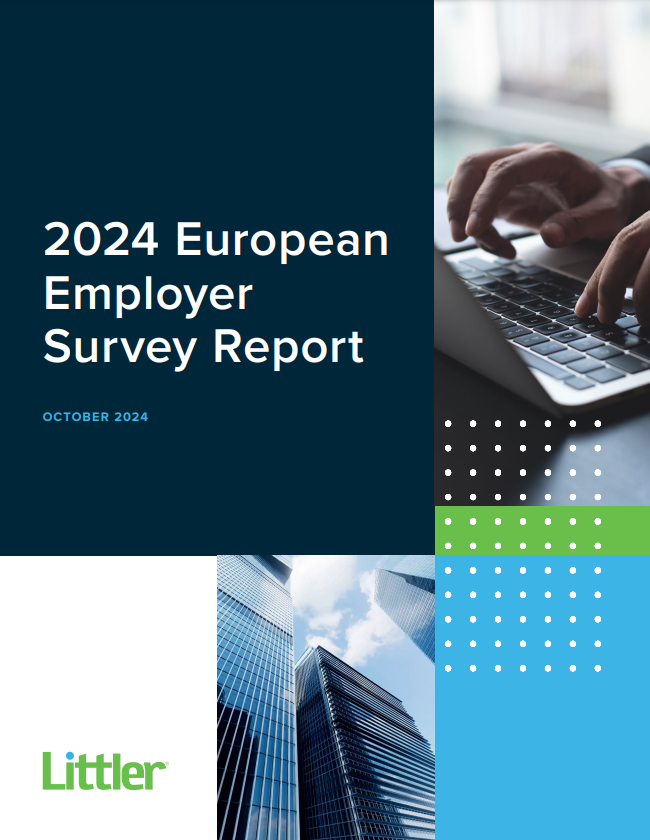We are excited to announce the launch of the 7th annual Littler European Employer Survey Report!
Completed by nearly 630 European HR executives, business leaders, and in-house lawyers, the report provides important benchmarks and insights around how employers are responding to a number of hot-button issues, from national election outcomes and the rapid adoption of artificial intelligence (AI) in the workplace to heightened pressure on environmental, social, and governance (ESG) initiatives and emerging compliance challenges.
Key findings of the 7th annual survey, conducted by global employment law firm Littler, include:
- Political Issues Are Top-of-Mind: 86% of European employers are facing at least some degree of difficulty managing politics in the workplace, including divisive beliefs among employees, up from 75% in last year’s survey. Additionally, 83% are concerned about employment law changes stemming from 2024 or 2025 elections across Europe.
- AI Adoption on the Rise: The use of AI in HR has grown across European workplaces over the last year, as most respondents (72%) now say their organisations are using either generative or predictive AI in at least one HR function.
- AI Policies Lag Behind Use: At the same time, only 53% of employers are confident that employees are not improperly using AI tools at work and just 29% have policies in place guiding employee use.
- ESG Issues Hold Centre Stage: Most executives (79%) say their organisations have increased their focus on ESG initiatives over the past 12 months. Climate risk is a particular concern, with 76% placing greater focus on sustainability over the same timeframe.
Read about hot-button issues, including election outcomes, AI adoption in the workplace, ESG initiatives, and emerging compliance challenges here.
About Littler
With more than 1,800 labour and employment attorneys in offices around the world, Littler provides workplace solutions that are local, everywhere. Our diverse global team and proprietary technology foster a culture that celebrates original thinking, delivering groundbreaking innovation that prepares employers for what’s happening today, and what’s likely to happen tomorrow.


